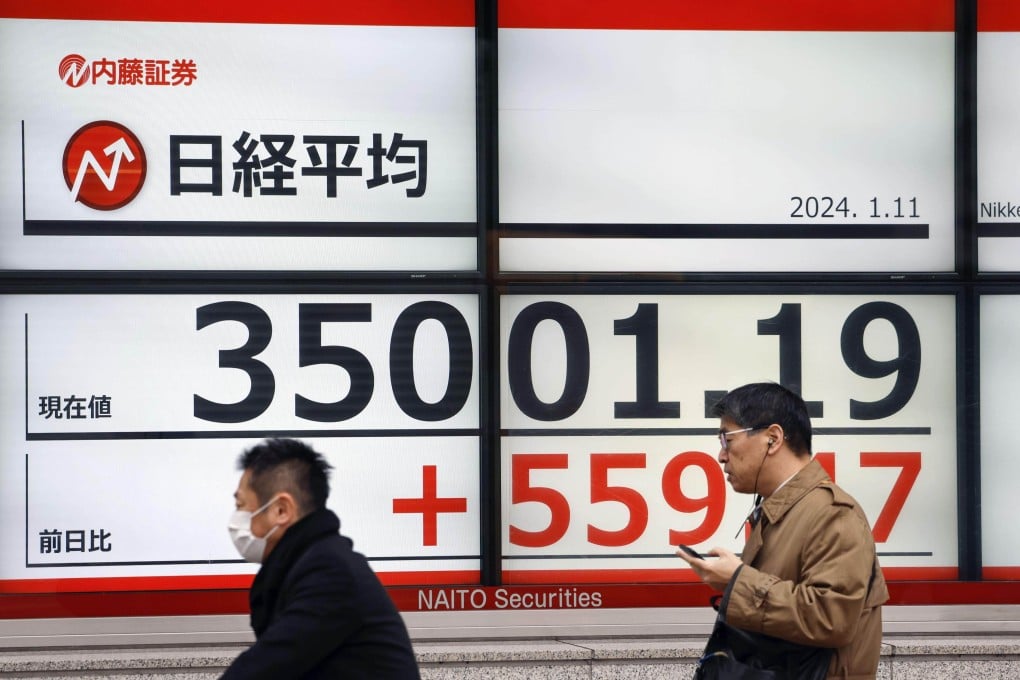Chinese investors fuel Nikkei 225 bull run, pour US$215 million into ETFs tracking Japanese stocks
- The medium and longer term outlooks for Japanese equities ‘remain very positive’, Lazard Asset Management says
- The buying binge has enlarged five funds issued by Chinese firms to 1.54 billion yuan (US$215 million), Bloomberg data shows

As a result, the Nikkei 225 and Topix have risen by more than 5 per cent this year, trouncing the CSI 300 Index of the 300 leading companies traded on the Shanghai and Shenzhen exchanges, which has recorded a 4.3 per cent decline.
“As we look forward to 2024, our medium and longer term outlooks for Japanese equities remain very positive, driven by the two key themes of corporate governance improvement and the shift to inflation from deflation,” Lazard Asset Management, a global money manager that oversees US$193.6 billion in assets, said in a strategy report this week.
“We would view a near term market pullback in Japan as an opportunity.”
In a sign of how frantic the trade is, daily turnovers of five index-based ETFs tracking Japanese stocks issued by Chinese mutual-fund firms have jumped to multi-year highs. The fund prices’ hefty premiums on their net asset values have prompted money managers to warn of potential investment risks.